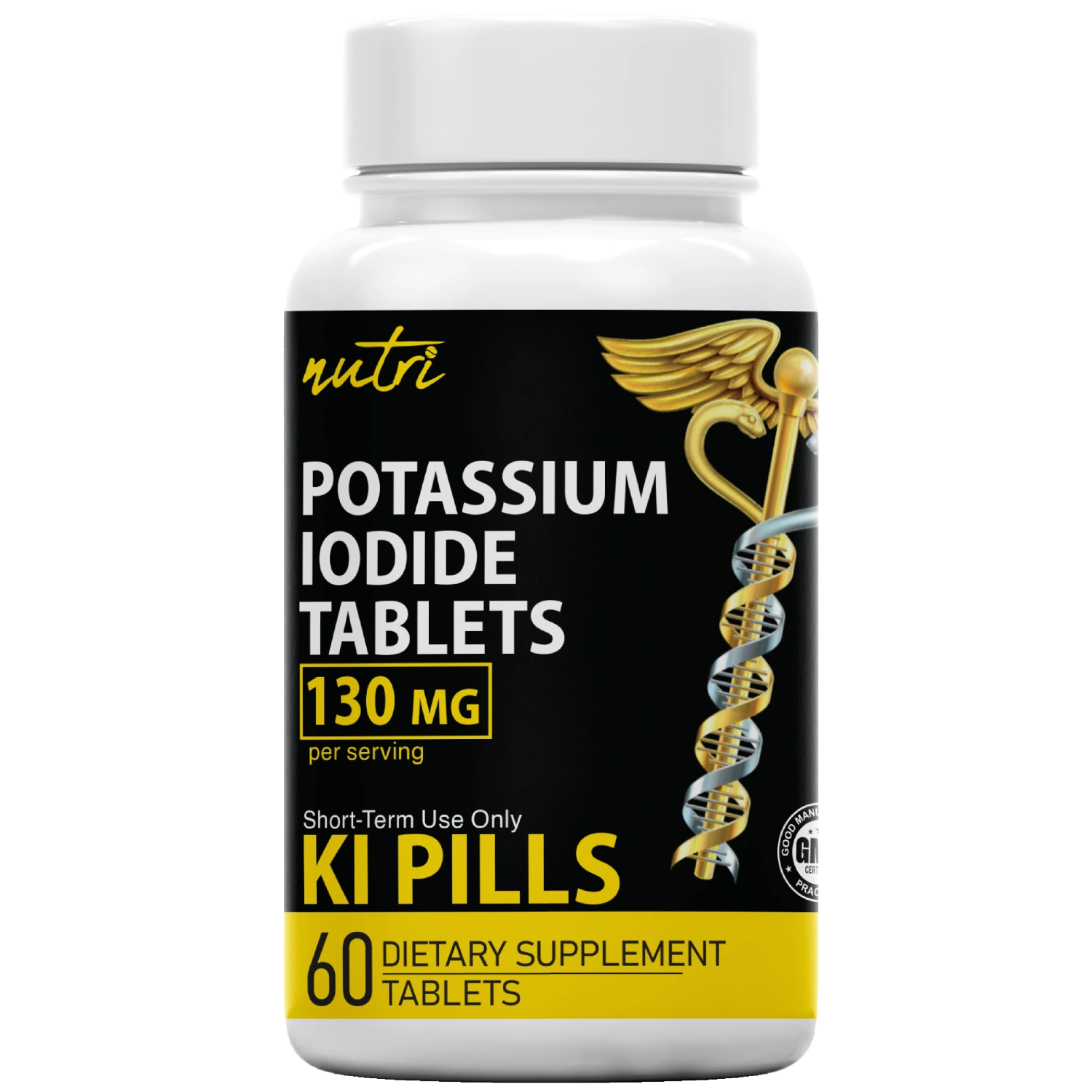
Understanding thyroid health is essential for maintaining overall well-being. The thyroid gland, located in the neck, plays a crucial role in regulating metabolism, energy production, and hormone balance. When the thyroid isn’t functioning properly, it can lead to a host of health problems, making it vital to protect and support this important gland.
Introduction to Thyroid Health
The thyroid gland is often overlooked, yet it controls many critical bodily functions. It produces hormones like thyroxine (T4) and triiodothyronine (T3), which influence almost every cell in the body. These hormones regulate metabolism, heart rate, and body temperature. When the thyroid gland is not working correctly, it can result in conditions such as hypothyroidism (underactive thyroid) or hyperthyroidism (overactive thyroid), both of which can significantly affect health and quality of life.
The Role of Iodine in Thyroid Function
Iodine is an essential mineral that the body needs to produce thyroid hormones. Without enough iodine, the thyroid gland cannot function properly. Iodine deficiency can lead to goiter (an enlarged thyroid gland) and other thyroid-related issues. Given that the body does not produce iodine naturally, it must be obtained through diet or supplements.
Understanding Potassium Iodide and Its Significance
Potassium iodide (KI) is a salt of stable (non-radioactive) iodine that is often used to support thyroid health. It is especially significant because it helps protect the thyroid gland from absorbing radioactive iodine, which can be released during certain types of nuclear events. This protective action is why potassium iodide tablets are included in emergency preparedness kits.
How Potassium Iodide Tablets Work as a Supplement
When taken as a supplement, potassium iodide tablets provide the body with the necessary iodine to maintain healthy thyroid function. The tablets work by saturating the thyroid gland with stable iodine, thereby reducing the uptake of harmful radioactive iodine. This process helps prevent thyroid damage and maintains normal thyroid function.
Dosage Recommendations for Different Age Groups
It’s important to follow recommended dosages when taking potassium iodide tablets to avoid any adverse effects. Here’s a general guideline:
Adults and children over 12 years: 130 mg daily
Children between 3 and 12 years: 65 mg daily
Children between 1 month and 3 years: 32 mg daily
Infants (birth to 1 month): 16 mg daily
Always consult with a healthcare provider to determine the appropriate dosage, especially for children and pregnant women.
Benefits of Regularly Consuming Potassium Iodide Tablets
Regular consumption of potassium iodide tablets offers several benefits for thyroid health, including:
Preventing iodine deficiency: Ensures that the thyroid gland has enough iodine to function correctly.
Supporting normal thyroid function: Helps maintain the production of essential thyroid hormones.
Protecting against radiation: Reduces the risk of thyroid damage from radioactive iodine exposure.
Improving overall health: A well-functioning thyroid contributes to better metabolism, energy levels, and hormonal balance.
Risks of Iodine Deficiency and Its Impact on Thyroid Function
Iodine deficiency can have serious consequences for thyroid health. Without sufficient iodine, the thyroid cannot produce enough hormones, leading to hypothyroidism. Symptoms of hypothyroidism include fatigue, weight gain, cold intolerance, and depression. In severe cases, iodine deficiency can cause goiter and developmental issues in children.
Safety Considerations and Possible Side Effects
While potassium iodide tablets are generally safe when taken as directed, it’s important to be aware of potential side effects. Some people may experience mild side effects such as stomach upset, headache, or a metallic taste in the mouth. More serious side effects are rare but can include allergic reactions, skin rashes, or thyroid dysfunction.
To minimize risks, follow these safety tips:
Stick to recommended dosages: Do not exceed the advised amount unless instructed by a healthcare provider.
Monitor your health: If you notice any unusual symptoms, stop taking the tablets and consult a healthcare provider.
Check for interactions: Ensure potassium iodide does not interfere with other medications you may be taking.
Tips for Incorporating Potassium Iodide into Your Daily Routine
Incorporating potassium iodide tablets into your daily routine can be simple and straightforward:
Set a reminder: Use a phone alarm or app to remind you to take your tablet at the same time each day.
Combine with meals: Taking the tablet with food can help reduce any potential stomach upset.
Stay consistent: Regular intake is key to maintaining optimal thyroid health.
Conclusion
Protecting your thyroid is crucial for overall health and well-being. Potassium iodide tablets offer a practical and effective way to ensure your thyroid gets the iodine it needs to function properly. By understanding the importance of iodine, the role of potassium iodide, and the benefits of regular supplementation, you can take proactive steps to support your thyroid health.
Consider incorporating potassium iodide tablets into your daily routine and consult with a healthcare provider to determine the best approach for your individual needs. With the right support, maintaining a healthy thyroid can be simple and achievable, leading to better overall health and vitality.